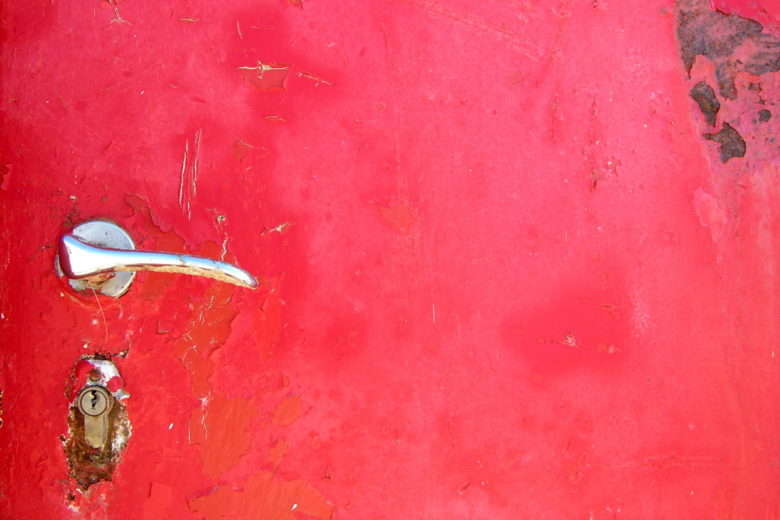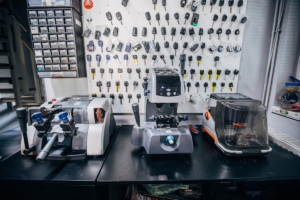Locks are essential for securing our homes, businesses, and valuables. However, like any mechanical system, they can face issues over time due to wear, environmental factors, or even human error. A malfunctioning lock can pose a serious security risk, leading to inconvenience, potential break-ins, or getting locked out of your home or office.
Regular maintenance and troubleshooting are key to ensuring your locks continue to function properly. While some problems are inevitable, many can be prevented or easily fixed with the right knowledge and tools. From sticky keys to malfunctioning electronic systems, understanding the common issues that locks face and how to address them can save you time, money, and stress.
In this article, we will dive into the most common lock problems, provide expert tips on how to fix them, and guide you on when it’s time to seek professional help. Whether you’re dealing with a traditional mechanical lock or a modern smart lock, this guide will help you keep your property secure and your locks in top working condition.
The importance of maintaining your locks goes beyond just avoiding inconvenience. A well-maintained lock offers peace of mind, ensuring that your home or business remains secure. This article will equip you with the tools and knowledge to tackle common lock problems, from preventing wear and tear to solving issues promptly, so you can keep your property safe and secure without unnecessary interruptions.
Understanding the Basics: How Locks Work and Common Problems
Locks, whether mechanical or electronic, work by using a series of pins, tumblers, or digital components that allow a key or code to align and unlock the mechanism. In traditional pin-and-tumbler locks, a key pushes the pins to a specific height, allowing the lock to turn and open. Over time, various parts of the lock can wear down or become dirty, causing problems like sticking or difficulty turning the key.
Common issues with locks include:
- Wear and Tear: Pins and tumblers wear out after years of use, leading to reduced effectiveness.
- Dirt and Debris: Dust or grime can clog the internal mechanisms, making it difficult for the key to engage properly.
- Corrosion: Exposure to moisture can cause rust and other forms of corrosion, especially in outdoor locks.
Dealing with Sticking Locks: Why It Happens and How to Fix It
Sticking locks are one of the most common problems people face. When a lock becomes sticky, it’s often due to dirt, dust, or corrosion inside the mechanism, which can prevent the pins from moving smoothly. A sticking lock can also be caused by a misaligned latch or bolt.
How to Fix It:
- Lubrication: Use a graphite lubricant (avoid oil-based lubricants, as they attract dust) to keep the internal parts of the lock moving smoothly.
- Clean the Lock: Gently clean the keyhole and locking mechanism with compressed air to remove any dirt or debris.
- Adjust the Strike Plate: Ensure that the strike plate is aligned correctly so the latch can easily slide into place.
The Issue of Broken Keys: Prevention and Solutions
A broken key inside a lock is frustrating and can cause immediate access problems. Keys typically break due to excessive force, wear, or a manufacturing defect. If you’ve accidentally broken a key, it’s crucial to address it promptly to prevent further damage.
Prevention:
- Regularly inspect your key for signs of bending or cracks.
- Avoid using excessive force when turning a key.
- Replace old or worn keys before they have a chance to break.
Solutions:
- Extracting the Broken Key: Use needle-nose pliers or a key extractor tool to remove the broken piece from the lock. Gently grip the key fragment and pull it out carefully.
- Key Duplication: If the key has broken beyond repair, take the remaining piece to a locksmith for duplication.
Key Won’t Turn? Here’s What Might Be Wrong
If your key won’t turn in the lock, it could be due to several issues. This is one of the most frustrating problems, but understanding the cause can help you fix it efficiently.
Possible Causes:
- Worn Pins: Over time, the pins inside the lock can wear down, causing the key not to engage properly.
- Corrosion or Dirt: Rust or dirt buildup can prevent the key from turning smoothly.
- Misaligned Mechanism: The lock components may be misaligned, preventing proper engagement.
What to Do:
- Lubrication: Apply a graphite lubricant into the keyhole to free up the mechanism.
- Key Replacement: If the key is damaged or worn out, try using a spare key or get a new key made.
Fixing a Lock That Won’t Latch Properly
A lock that won’t latch can leave your door unsecured. Common causes for this issue include misalignment, debris, or a malfunctioning bolt.
What to Check:
- Strike Plate Alignment: Ensure the strike plate is properly aligned with the latch. If it’s out of alignment, the latch won’t fit properly into the hole.
- Debris: Check for any dirt, rust, or other obstructions inside the latch or bolt.
- Loose Screws: Tighten any screws that may have loosened, causing the lock to shift.
How to Fix It:
- Realign the Strike Plate: Use a screwdriver to adjust the strike plate so that the latch aligns perfectly.
- Clean the Latch Mechanism: Remove any debris that could be blocking the latch from fully engaging.
How to Repair or Replace a Damaged Lock Cylinder
The lock cylinder is the heart of the locking mechanism. If it’s damaged, the entire lock may stop functioning correctly. Common signs of a damaged cylinder include difficulty inserting the key or the key turning but the lock not engaging.
Repairing or Replacing the Cylinder:
- Examine the Cylinder: Check for any visible damage, such as cracks or excessive wear.
- Lubricate the Cylinder: If the lock is stiff, lubricating the cylinder may help. However, if the cylinder is broken, it will need to be replaced.
- Cylinder Replacement: To replace the cylinder, unscrew the lock, remove the old cylinder, and install a new one. This can typically be done by a homeowner, but it’s best to consult a locksmith if you’re unsure.
Dealing with Frozen Locks in Winter: Tips to Avoid and Resolve It
Frozen locks are a common issue in colder climates. When moisture gets inside the lock mechanism, it can freeze, making it impossible to turn the key.
Prevention Tips:
- Use Lock Covers: Install lock covers to protect your locks from rain, snow, and ice.
- Apply Lubricants: Use a silicone spray or lock de-icer to keep moisture from freezing inside the lock.
How to Fix a Frozen Lock:
- Apply Heat: Use a hairdryer or a portable heat source to gently warm the lock. Be careful not to overheat it.
- Lock De-Icer: Spray a lock de-icer into the keyhole to melt the ice inside.
- Graphite Lubrication: After thawing the lock, apply graphite lubricant to prevent further freezing.
Electronic and Smart Lock Troubleshooting: Common Issues and Solutions
With the rise of electronic and smart locks, more homeowners are experiencing problems related to these advanced security systems. Common issues include dead batteries, connectivity problems, or malfunctioning sensors.
Common Issues:
- Dead Batteries: Electronic locks rely on batteries, and when they run low, the lock may stop working entirely.
- Connectivity Issues: Smart locks that rely on Bluetooth or Wi-Fi may experience connectivity problems.
- Malfunctioning Sensors: Smart locks may fail to recognize the key fob or your fingerprint.
How to Fix It:
- Battery Replacement: Regularly check and replace the batteries in your electronic locks to avoid unexpected failures.
- Resetting the Lock: Reset the lock’s settings if it’s not connecting properly to your device.
- Firmware Updates: Ensure that the firmware for your smart lock is up to date to avoid software-related issues.
When to Call a Locksmith: Knowing When a Professional Is Needed
While many common lock problems can be fixed with DIY solutions, some issues require the expertise of a professional locksmith. Knowing when to call a locksmith can save you time, stress, and potential damage to your locks.
When to Call a Locksmith:
- Complex Lock Problems: If your lock is severely damaged or if you’re unsure about how to fix it, a locksmith will have the right tools and expertise.
- Lost or Stolen Keys: If you’ve lost your keys or believe they’ve been stolen, a locksmith can rekey or replace the locks to maintain your security.
- Electronic Lock Failures: If your electronic or smart lock continues to malfunction after troubleshooting, a professional locksmith can inspect the system and offer solutions.
The Importance of Regular Maintenance for Lock Longevity and Security
Locks are essential to ensuring the safety and security of your home, business, and personal belongings. As we’ve discussed, a variety of common problems can affect the functionality of locks, from sticking mechanisms to broken keys or frozen cylinders. Regular maintenance and quick troubleshooting can help prevent these issues from escalating and protect your property.
By keeping your locks clean, lubricated, and properly aligned, you can extend their lifespan and reduce the likelihood of malfunctions. For more advanced lock systems, such as electronic or smart locks, staying on top of battery changes, software updates, and connectivity checks is equally important to ensure smooth operation.
While many lock issues can be resolved with simple DIY fixes, knowing when to seek professional help is crucial. A locksmith can provide expertise and advanced solutions for more complex problems, ensuring your locks remain reliable and secure.
Ultimately, maintaining your locks is not only about convenience but also about safeguarding your home and loved ones. By addressing small issues before they turn into major problems, you can enjoy peace of mind, knowing your locks are functioning at their best. Regular upkeep will ensure that your locks continue to provide the security and protection you need for years to come.
In conclusion, keeping your locks in top condition is an investment in the overall security of your property. It’s not just about fixing immediate issues, but preventing future complications that could compromise your safety. Whether you’re handling minor maintenance tasks yourself or relying on professional locksmith services for more intricate repairs, consistent attention to your locks’ health will help avoid larger, more expensive problems down the road. Remember, proactive care is always more efficient—and less costly—than reactive repairs. Take the time to check, maintain, and repair your locks regularly, and you’ll enjoy lasting security for your home and peace of mind.

I’m Marcel Brandt, a locksmith with over 15 years of experience. I specialize in modern security solutions and love sharing tips to help fellow locksmiths succeed in their careers.




